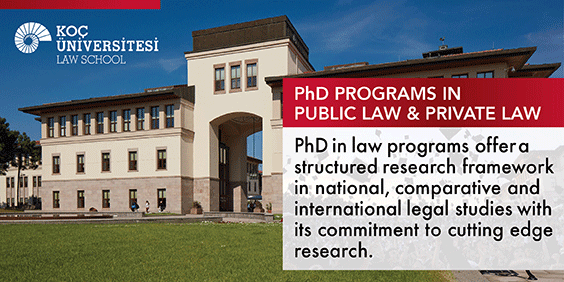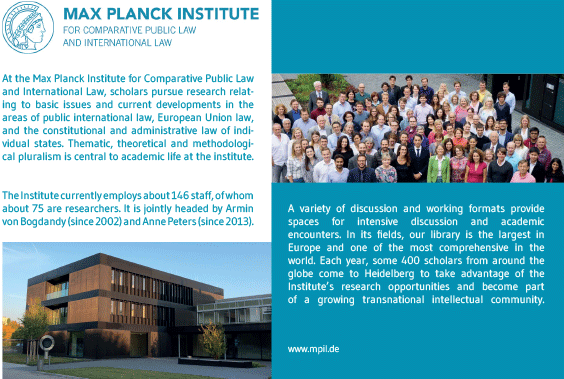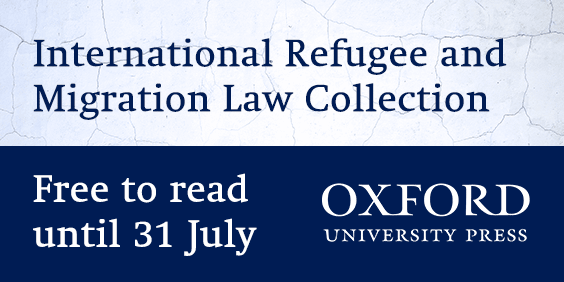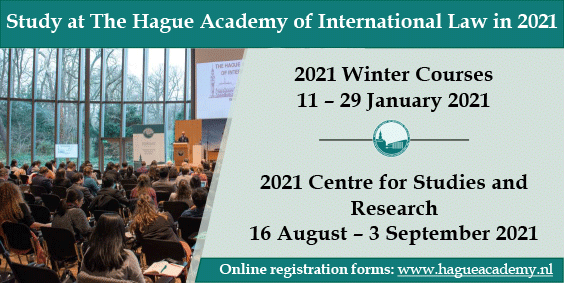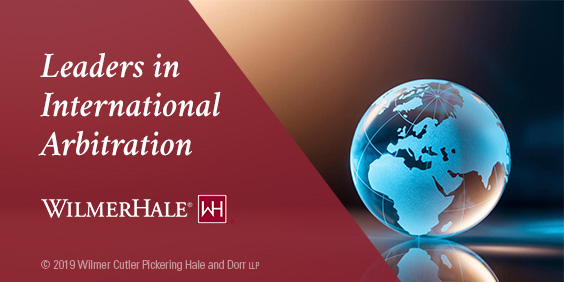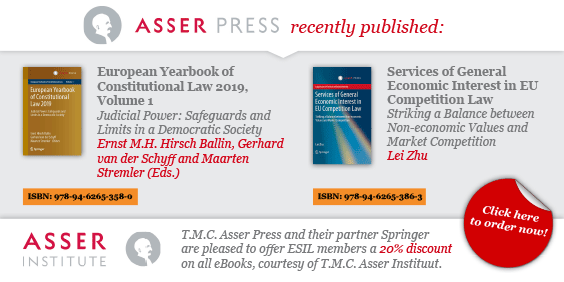ESIL Newsletter: June 2020
Editor: Sandrine Maljean-Dubois (University of Aix-Marseille)
 In this issue
In this issue
1. President’s Message

Photini Pazartzis
As this issue of the ESIL Newsletter was going to press, protests across the world, in the wake of the tragic events in Minneapolis, dominated the news. We, as individuals and international lawyers, are closely following the debates and the reactions by colleagues here, by independent experts of the Special Procedures of the United Nations Human Rights Council here, and most recently, the scholarly debate initiated in a Symposium launched by our colleagues at Ejiltalk.
Most certainly, this discussion will continue, and as it directly touches on international law, so it involves all of us. In this sense, we had a lengthy discussion within the ESIL Board as to whether and how our Society, as a community of international/European scholars, should react. This is part of a recurrent debate on the role of international scholarly societies, which has been the object of discussion on various occasions, both within ESIL, and in other societies of which many of us are also members. Now is not the time to launch a general discussion on how to separate politics from law, a perennial discussion, from Lauterpacht’s The Function of Law in the International Community to, -for the sake of linguistic diversity-, de Visscher’s Théories et realités du droit international public.
Despite differing views, as international lawyers, we felt compelled to acknowledge the debate in Europe and across the world on racial violence, human rights, and justice, which are issues of universal concern. We also wanted, as a Society, to reaffirm our standing commitment to the promotion of the rule of law, human rights, equality and non-discrimination both within and outside our community. I hope that the Society, through its work, will continue to engage in topical debates on issues of international law.
Photini Pazartzis
ESIL President
2. Updates from the Secretary General

In normal times, we would now be buying plane tickets and making hotel bookings for the 16th ESIL Annual Conference that was due to take place in September 2020 in Stockholm. We would also be getting ready for various ESIL joint events and ESIL-supported events that were planned for these months.
Unfortunately, we are not living in normal times. As you have all certainly noticed, over the past couple of weeks, the ESIL Board, acting in cooperation with local organizers, has had to take the difficult decision to postpone most of the ESIL events scheduled for 2020. These include the ESIL Research Forum (Catania, April 2020) and the ESIL Annual Conference (Stockholm, September 2020). The Board sincerely regrets that there will be no opportunity to gather and discuss topical issues of international law – and the current crisis itself certainly provides a lot of such topics – in the coming months. Yet, health concerns and consideration for local organizers, who can hardly be expected to engage in preparatory work in the current atmosphere of uncertainty, have had to prevail. We are confident that ESIL members will understand the situation and endorse our decisions.
However, none of the ESIL events planned for this year has been completely cancelled. We have already set new dates for our main annual events: the Research Forum, on ‘Solidarity: The Quest for Founding Utopias of International Law’, is planned for 15-16 April 2021 (Catania). The 16th ESIL Annual Conference, on ‘Changes in International Lawmaking: Actors, Processes, Impact‘, will take place on 9-11 September 2021 (Stockholm). The programmes of these two events have already been set up and will be left untouched to the extent possible. For ESIL joint events and ESIL-supported events, the Board will be in touch with local organizers to determine new dates, and possibly new modalities (video-conferences, etc.). Updated information can be found, as always, on the ESIL website and in the monthly ESIL Updates.
Some events, especially the smaller-scale ones, might be held through alternative means (Zoom or Skype meetings, webinars, etc.). The Board has been working on a new ESIL Carbon Footprint strategy for some time, intending to actively encourage a broader use of alternative means of communication within the Society and its interest groups. The current crisis has forced many of us to explore such alternatives for teaching, holding meetings, communicating with our students or colleagues. We hope to capitalise on these newly acquired skills within ESIL. While online communication will not, and cannot, completely replace real-life meetings, it can be a helpful complement to make the Society, at the same time, better prepared for times of crises and more environmental-friendly.
The Board, using new ways of communication will hold the ESIL General Assembly on Friday 11 September 2020, as planned (15-17 CET). The General Assembly is the only body within ESIL competent to approve the Annual Report and the Audit Report. This year, moreover, the mandate of seven members of the ESIL Board will expire and it is, again, the General Assembly, which has to elect new Board members. After a thorough discussion of alternative options, the Board has decided to proceed with the elections according to the original schedule. The elections will take place by means of electronic voting, after the ESIL General Assembly (which will be held by Zoom). All ESIL members will be invited to register to attend the GA and/or vote in the Board elections.
You will receive more detailed information about the GA and the elections in the near future. We hope that online communication will make the process more inclusive and accessible to all members of the Society.
Allow us to wish you, on behalf of the ESIL Board, good health, strong nerves and a (large) dose of patience. All crises, including the one we are currently facing, bring new challenges and new opportunities. Let’s hope that each of us individually, as well as all of us in ESIL collectively, will be able to withstand the former and make the best use of the latter.
Veronika Bílková
ESIL Secretary-General
3. Guest Editorial: Addressing Climate Change in the Post-Covid World

Lavanya Rajamani
The disruption that Covid-19 has brought in its wake has profoundly altered the ways in which we live, work, and interact with others. While many cling to the hope that we will emerge from this dark phase in human history and return to ‘normalcy’, it is becoming increasingly clear that the new ‘normal’ is unlikely to look and feel like the pre-Covid one. This is readily apparent in the field of international climate change law and policy.
The worldwide lockdowns in the last few months, as people are confined to their homes and businesses are shuttered, have resulted in a dramatic downturn in energy demand and CO2 emissions. In a recent article in Nature, researchers estimate that daily CO2 emissions decreased by 17% in April, and that annual emissions in 2020 are likely to reduce by 4 to 7%. While this may at first glance appear to be a silver lining to the Covid cloud, on balance Covid disruption is likely to create a serious (and potentially fatal drag) on global efforts to address climate change.
The emissions decreases in 2020 – occasioned by traumatic and drastic confinement measures rather than structural changes in the economic, transport, energy or agricultural systems – are likely temporary. Meanwhile the ambitious commitments, actions, policies and measures needed to trigger and sustain emissions reductions in line with a ‘well below 2°C’ temperature limit grow ever further from reach.
The Nationally Determined Contributions (NDCs) Parties have submitted thus far under the 2015 Paris Agreement place us on track to a 3.2°C temperature limit. This initial shortfall in ambition needs to be made up by progressively more ambitious NDCs every five years, starting from 2020. Thus far only seven States, representing a statistically insignificant fraction of global emissions, have updated their NDCs. While the request to update NDCs is pegged to 2020, rather than the annual conference of Parties(COP-26), the Covid-related postponment of this conference by a whole year has significant implications. These annual conferences – a moment of heightened popular and media attention, civil society direct action, head of state level interventions, and state-to-state influence – represent an important trigger as well as a commitment mechanism for States. The delay of COP-26, while unavoidable, will affect the pace of updates to NDCs – a pace that the narrow and rapidly closing window of opportunity to avert dangerous climate change can ill afford. Moreover, Covid-19 has fundamentally altered the political, social and economic context in which NDCs will now be formulated. As States struggle to recover from the economic crisis occasioned by the lock-downs, the temptation to ease regulatory burdens on business, re-negotiate trade deals, and divert spending and attention away from climate action is high. States must resist this temptation.
In a reminder of the ever-present dangers of climate change, global temperatures in May 2020 were the hottest on record. As Covid has grimly demonstrated, seismic disruptions, Covid and climate alike, affect the poor, marginalized and vulnerable the most. As nations emerge from the shadow of Covid, it is imperative that they act with vision and foresight to commit to a green and just recovery – one that prioritizes decarbonization and climate resilience, and is framed with a sensitivity to the needs of the poor and vulnerable, on the frontlines of climate impacts as they are of Covid.
4. 2021 Research Forum
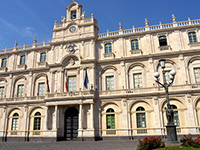
The University of Catania, Department of Law, will host the ESIL Research Forum ‘Solidarity: The Quest for Founding Utopias of International Law’. The Catania ESIL Research Forum aims at inspiring thoughtful reflections on the genealogy of international solidarity by focusing on the actors, norms and processes influencing its evolution over time.
Due to Covid-19 crisis, the ESIL Board and the ESIL Research Forum Committee have decided to postpone the upcoming event, which was due to take place in October 2020. The event will be held on Thursday April 15 and Friday 16 2021. The programme will remain as planned, subject to further confirmation of availability by the panelists.
All speakers and Interest Groups will be updated shortly.
Organizers will keep all registered participants informed on the updated schedule of the Research Forum.
For assistance and information please visit the conference website or contact the local secretariat: 2020esil.rf.catania@lex.unict.it
5. 2021 Annual Conference

The 16th annual conference will be held 9-11 September 2021, with pre-conference workshops on 8 September. The programme and the venue will be the same as planned for 2020; see our website for more information. All speakers for 2020 have been invited for 2021, and we thank them for their positive responses.
6. ESIL SSRN Series

The SSRN Papers from the 2019 Annual Conference in Athens (‘Sovereignty: A concept in flux?’) are now available online.
The ESIL SSRN Paper Series features papers presented at ESIL Events (Annual Conferences, Research Forums, and Interest Groups events). Publication in the ESIL Series enables authors to disseminate their work widely and reach broader audiences without the usual delays involved in more traditional means of publication. The current SSRN Series editors are Gleider Hernandez and Sandrine Maljean-Dubois. For further information or in case of enquiries please contact: esil.ssrn@gmail.com and gleider.hernandez@kuleuven.be or s.maljean-dubois@univ-amu.fr
7. ESIL Reflections

ESIL Reflections are short papers published on the website of the European Society of International Law (ESIL). ESIL Reflections offer up-to-date reflections on current issues in international law. The Reflections are now in their sixth year, covering a wide range of topics relating to current developments in international law and practice as well as theoretical reflections in a way that is relatively accessible to non-experts. The aim is to foster discussion between ESIL members and international law scholars and practitioners more generally – in Europe, but also beyond. ESIL Reflections are published online and distributed freely to ESIL members.
The editors are Federico Casolari, Patrycja Grzebyk, Ellen Hey, Guy Sinclair and Ramses Wessel (editor-in-chief).
ESIL Reflections are short papers (3000-4000 words) that argue one particular point that may trigger further debate in the scientific community. Extensive referencing is to be avoided. References are only necessary in case of direct citations or when new or less well-known works are mentioned.
Latest publications are:
- States’ Resilience to Future Health Emergencies – Connecting the Dots between Core Obligations and Core Capacities by Brigit Toebes
- Due Diligence and Extraterritorial Human Rights Obligations – Mind the Gap! by Samantha Besson
8. News from Interest Groups
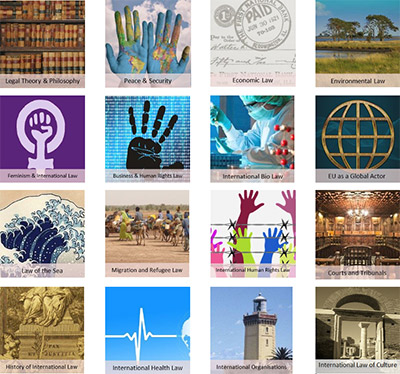
ESIL Interest Groups are a vital part of the Society’s success and activities. A list of the groups is available on the ESIL website. Reports of recent activities and upcoming events are available in the full text of the Newsletter.
Interest Group on International Law of Culture
As our IG looks forward to its postponed event at the ESIL Research Workshop in Catania, we will begin an outreach initiative to our members seeking ideas for further events and proposals for the postponed ESIL Annual Meeting in Stockholm next year. In the meantime, please continue to follow our blog for updates and developments in the field at http://esilhil.blogspot.com/
